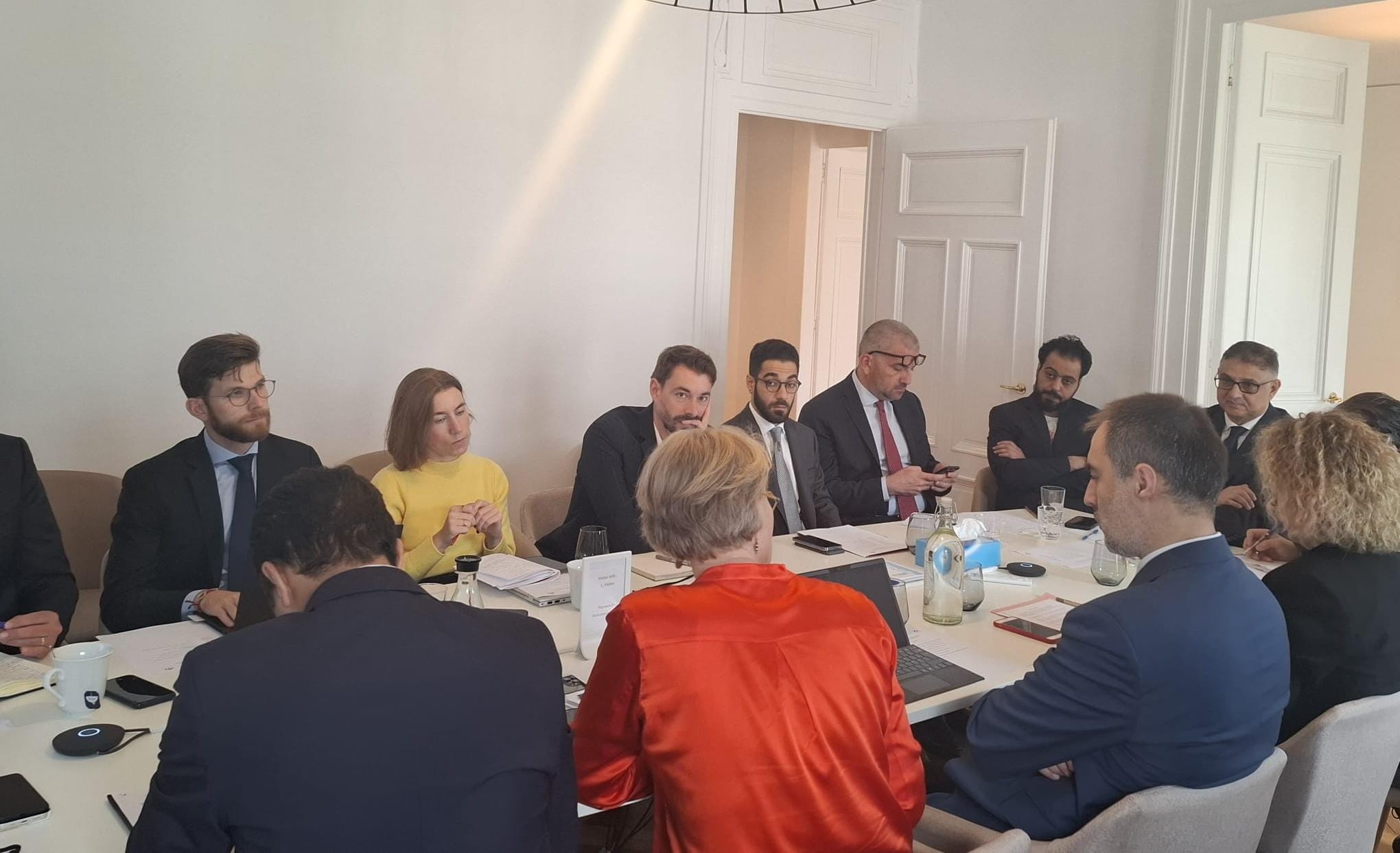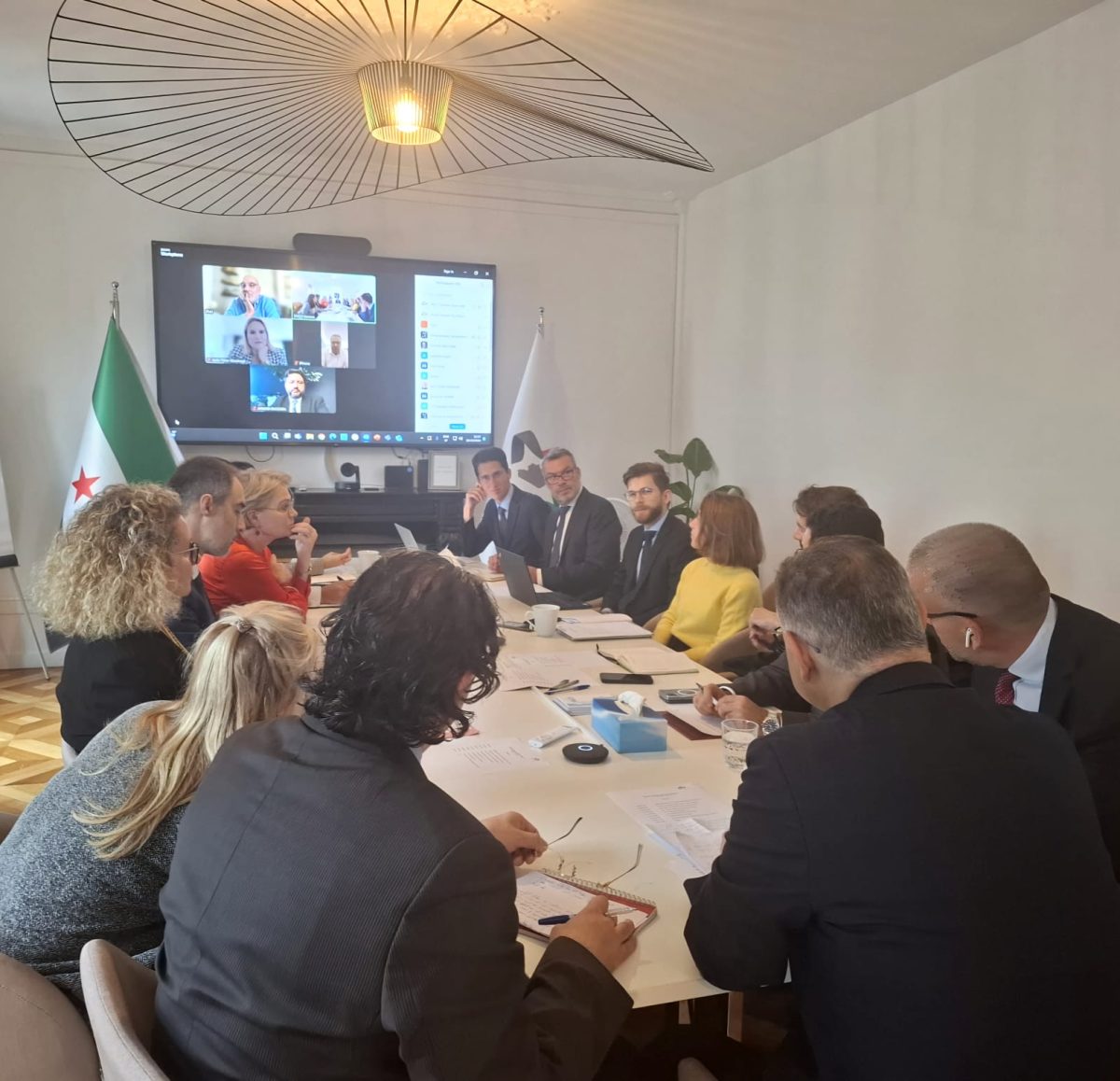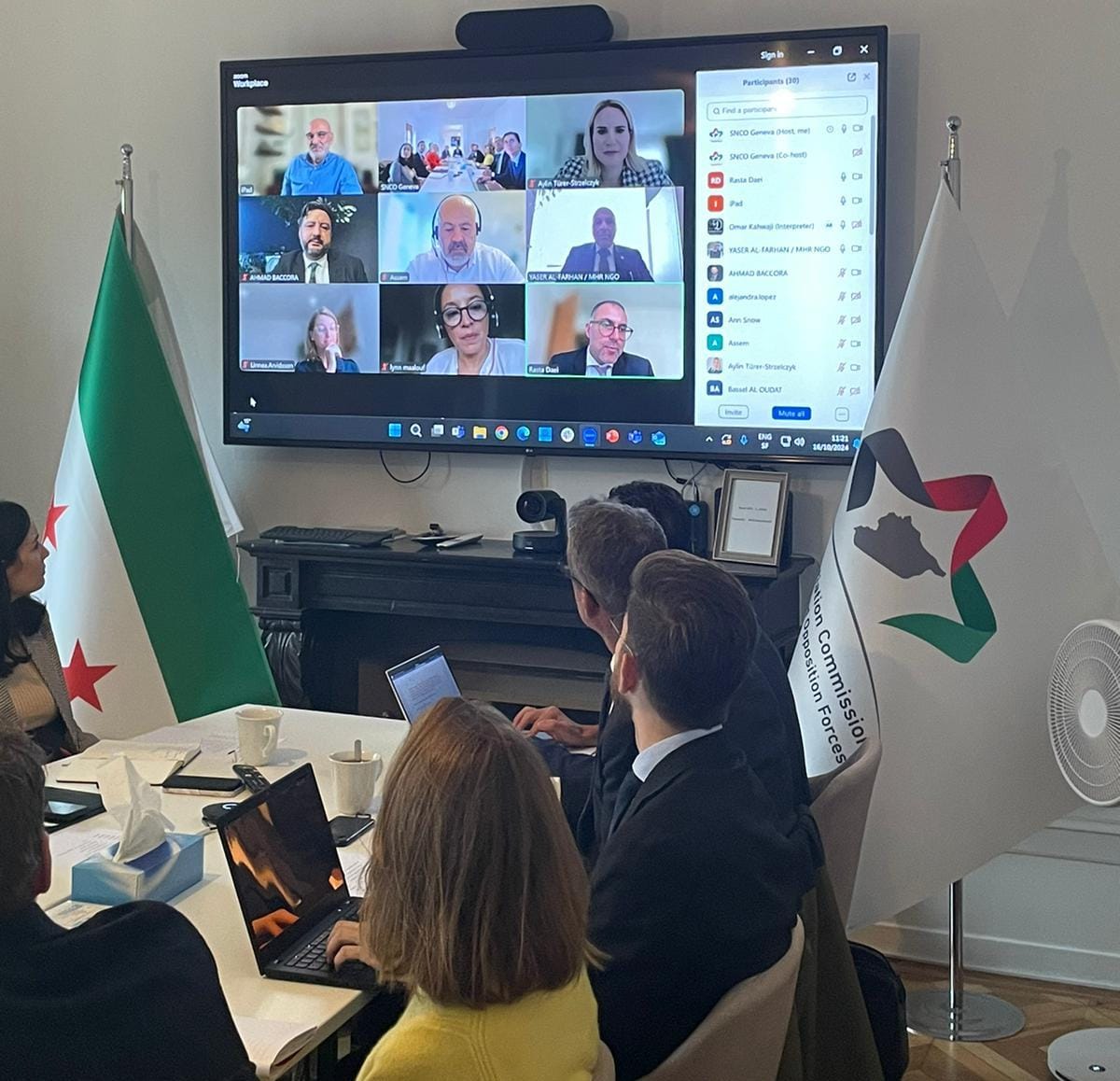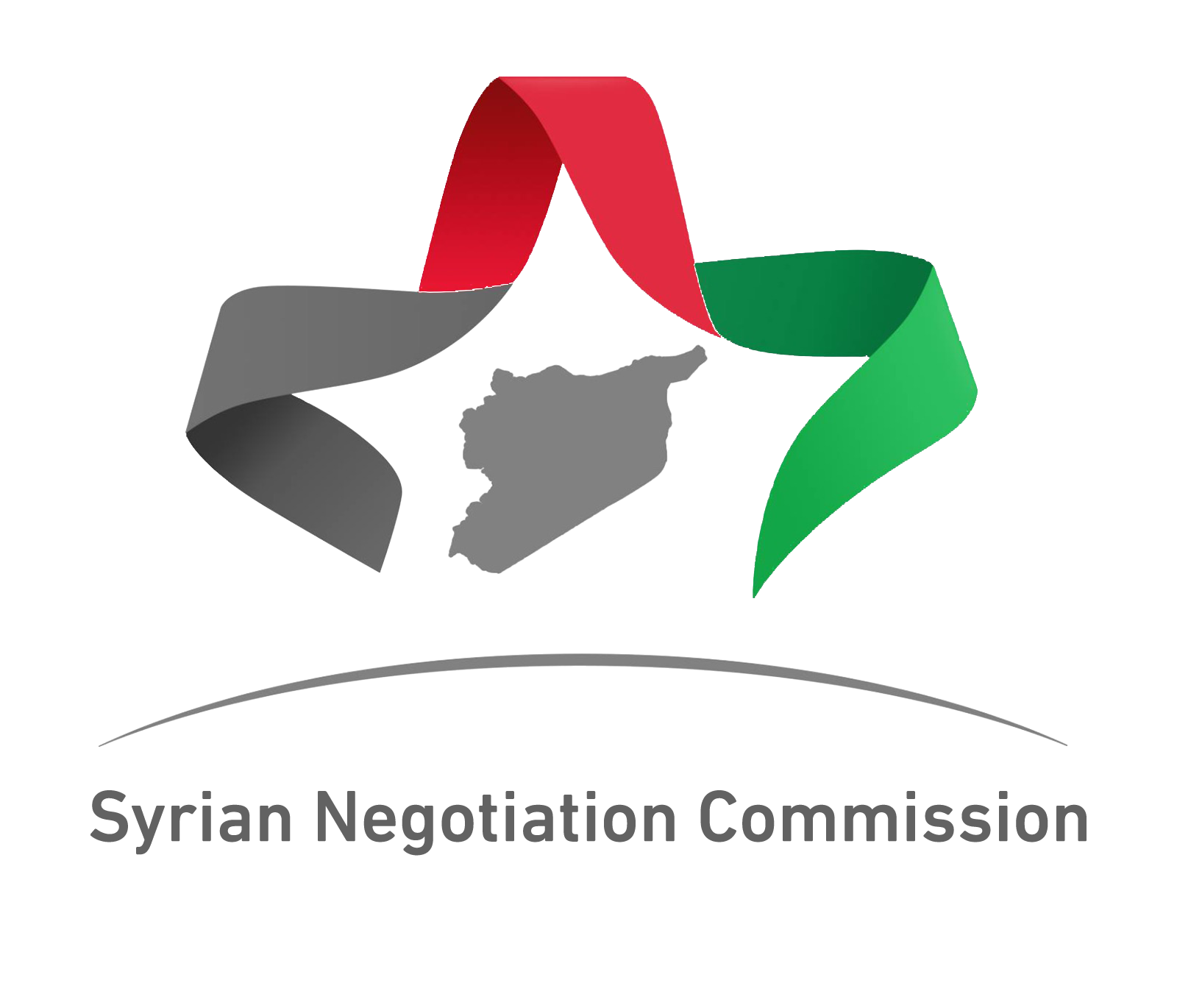Call to Strongly Promote a Political Solution at the Meeting of Envoys and Representatives of Countries
Head of the Negotiation Commission Calls on the International Community to Stop the Prolonging Conflict in Syria

October 16, 2024
The head of the Syrian Negotiation Commission, Dr. Badr Jamous, urged representatives of influential countries to work at the Security Council level to issue resolutions for the withdrawal of all foreign militias from Syria, and to establish an international monitoring mechanism to ensure that returnees from Lebanon are not forcibly detained or disappeared, with the Negotiation Commission being part of this mechanism. He also emphasized the necessity of including the Syrian Negotiation Commission in all Security Council meetings related to the Syrian issue.
During a meeting held today (Wednesday) at the office of the Syrian Negotiation Commission in Geneva, Dr. Jamous discussed the political solution in accordance with international resolutions that meets the aspirations of the Syrian people, and the continued evasion and obstruction of this solution by the Syrian regime and its supporters, who are blackmailing the Syrians and the international community to achieve their goals. He highlighted the dangers posed by the obstruction of the political solution, including division, displacement, killing, and worsening humanitarian tragedies.
He revealed that the Commission is working diligently to push for an international conference on Syria to advance the political solution and to prevent the Syrian file from being held hostage by the Syrian regime and its supporters indefinitely.
Dr. Jamous spoke about the Commission’s rejection of the ongoing attacks and wars against civilians in Gaza and Lebanon, pointing out the significant need for humanitarian relief. However, he stressed that the region cannot be viewed solely from a humanitarian perspective, as what is happening is a distinct political struggle. He warned that the refugee crisis would worsen if there is no push towards a political solution.
He addressed Iran’s attempts to extend its influence beyond its borders, exploiting regional conditions, and sending its tools such as Hezbollah and the Revolutionary Guard, along with other organizations and militias, to Syria to support the Syrian regime and impose its agenda on the region while blackmailing the international community.
Dr. Jamous expressed concerns that the Israeli aggression against Lebanon, which has led a large segment of the Lebanese population to seek refuge in Syrian territory, could contribute to a new demographic change, especially since many have been displaced to Qusayr and Qalamoun, areas occupied by Hezbollah in Syria.
He elaborated on the conditions of Syrian refugees in Lebanon, whether they are migrants for economic reasons, the large segment fleeing from the regime and wanted for security and political reasons, or those evading compulsory military service due to their refusal to kill their own people. He noted that many families are forced to have only women and children return while the men remain in Lebanon for fear of their lives if they return to Syria, as the regime’s fictitious amnesty does not cover opponents, detainees, or politically displaced individuals, which the regime is trying to market as a presidential grace. He remarked that “the killer wants to grant amnesty to the killed.”
The meeting was attended by the special representative of the United Kingdom for Syria, along with representatives from France, Germany, the Netherlands, Canada, Turkey, Switzerland, the European Union, Egypt, and Qatar, as well as representatives from the Czech Republic, Norway, Spain, Belgium, Denmark, Luxembourg, Italy, Japan, and Spain, along with representatives from international and Syrian organizations, amid international interest in regional developments, particularly the situation in Syria and the repercussions of the Israeli aggression on Gaza and Lebanon.
Media Office


